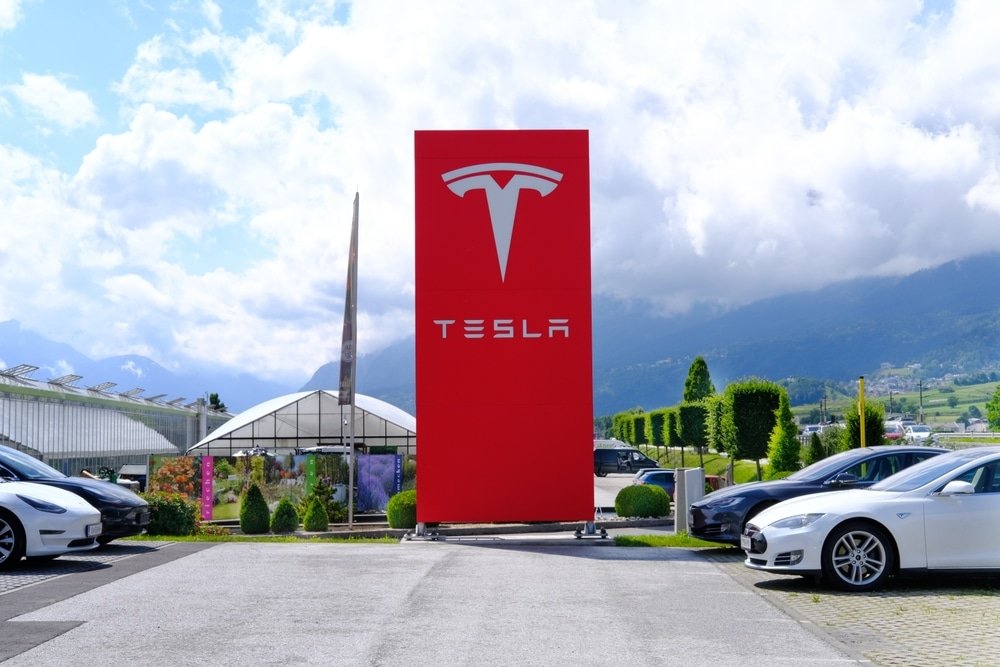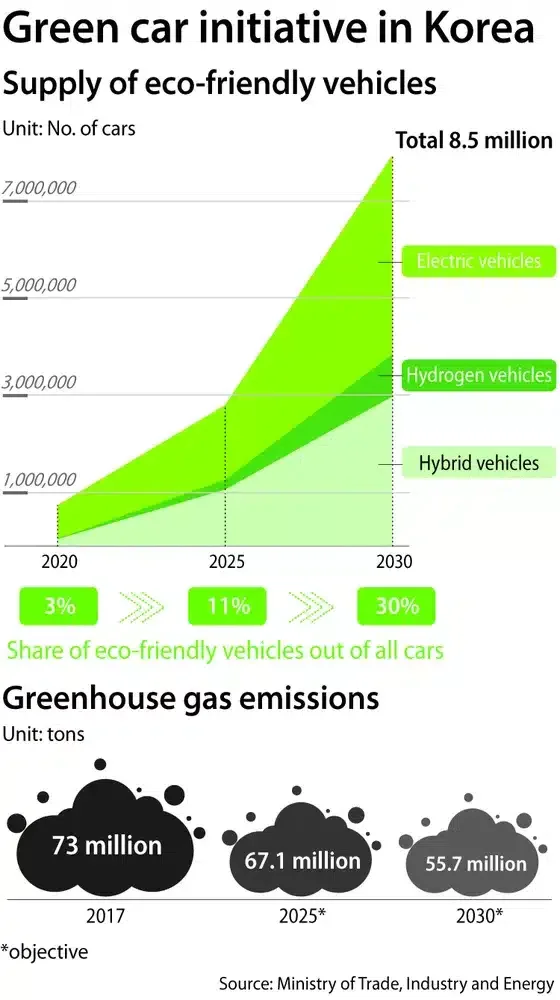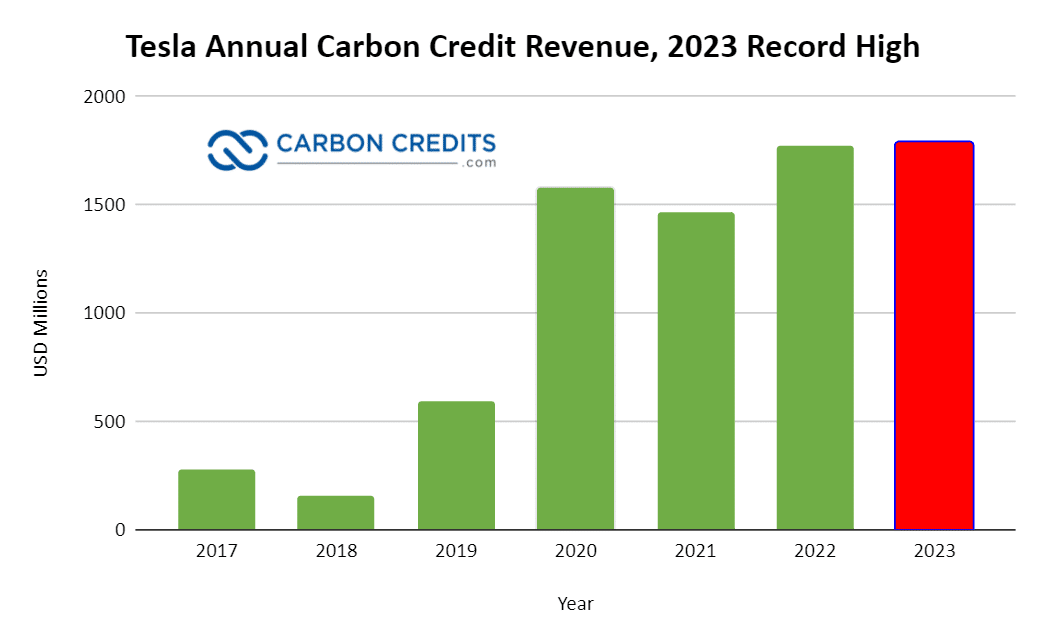In a significant development, Tesla has received approval from South Korea’s Ministry of Environment to sell regulatory automotive emission credits, also called carbon credits domestically, marking a pivotal moment for the electric vehicle giant. This move creates new revenue opportunities for Tesla while demonstrating a deeper integration of EVs into the South Korean market.
As reported by Korea Economy TV, Tesla currently possesses around 4 million grams/km of carbon credits in South Korea. Based on current penalty rates, the credits are valued at up to 200 billion won (around $145 million). The carmaker can sell these credits to its peers and earn starting this year.
Driving Towards Net Zero: South Korea’s Green Mobility Goals
Korea’s ambitious push toward achieving 2050 net zero carbon emissions hinges on transitioning from internal combustion engines to eco-friendly vehicles.
The country aims to bolster its fleet with an accumulated 2.8 million eco-friendly vehicles by 2025, encompassing battery-powered electric vehicles (BEVs), fuel-cell EVs, and hybrids. Looking ahead to 2030, the government targets a significant expansion, aiming for 7.85 million eco-friendly vehicles.
This would mean that 30% of all vehicles in Korea will draw power from electricity. Additionally, a staggering 83% of newly sold cars in 2030 would need to be eco-friendly models.
Such ambitious goals are not merely symbolic; the government anticipates a 24% reduction in GHG emissions over the next decade. This is crucial for the overarching aim of achieving net zero emissions by 2050.
In South Korea, regulations mandate that automakers maintain average greenhouse gas (GHG) emissions below a specified standard. There are penalties for non-compliance, 50,000 won per g/km, or the option to purchase credits from other companies.
The Ministry of Environment is responsible for implementing emission regulations for engines and vehicles in the country, with the National Institute of Environmental Research serving as an advisory body.
Korea adopts emission standards from either European or US sources depending on the application:
- Light-duty gasoline vehicles adhere to US/California standards.
- Light-duty diesel vehicles follow European standards.
- Heavy-duty trucks and bus engines comply with European regulations.
- Mobile nonroad diesel engines adhere to US standards.
Tesla’s Path to Carbon Credit Approval
Tesla’s entry into the carbon credit market in South Korea adds a new dimension to the country’s efforts to tackle automotive emissions.
However, Tesla faced challenges in establishing itself in South Korea’s emission credit market. The EV leader’s efforts were initially hindered by regulatory limitations that restricted participation to automakers selling over 4,500 vehicles annually as of 2009.
But through persistent advocacy efforts, Tesla Korea successfully lobbied for regulatory amendments in 2021 to enable its participation.
The final hurdle was obtaining approval from the Ministry of Environment, which was granted earlier this year. This clears the way for Tesla to engage in carbon credit trading in South Korea. The Ministry highlighted the collaborative process involved, including consultations with other governmental bodies like the Ministry of Trade, Industry, and Energy.
The sale of carbon credits has proven to be a lucrative revenue stream for Tesla, with the opportunity to enter the Korean market poised to bolster the company’s position even further.
Tesla’s Carbon Credit Success
In 2023 alone, Tesla raked in $1.79 billion from the sale of carbon credits. Since 2009, the total revenue generated from this source has amounted to nearly $9 billion for Tesla.
In its first-quarter 2024 filings, Tesla disclosed a $442 million income from the sale of carbon credits. This amount reflects a modest 2% uptick from the preceding quarter of Q4 2023, which stood at $433 million.
Notably, this revenue from credits constitutes a significant portion of the company’s Q1 2024 net income, amounting to a staggering 38.6% of $1,144 million.
Tesla’s success in South Korea extends beyond emission credits, with the Model Y’s popularity propelling Tesla to become the country’s second-largest vehicle importer as of March 2024, surpassing established brands like Mercedes-Benz. With 6,025 vehicle registrations in March 2024, Tesla has firmly entrenched itself in the South Korean automotive market.
In summary, Tesla’s entry into South Korea’s carbon credit market represents a significant milestone in the company’s expansion and sustainability efforts. Overcoming regulatory hurdles and securing approval positions Tesla to play a crucial role in shaping the future of automotive emissions in South Korea.



